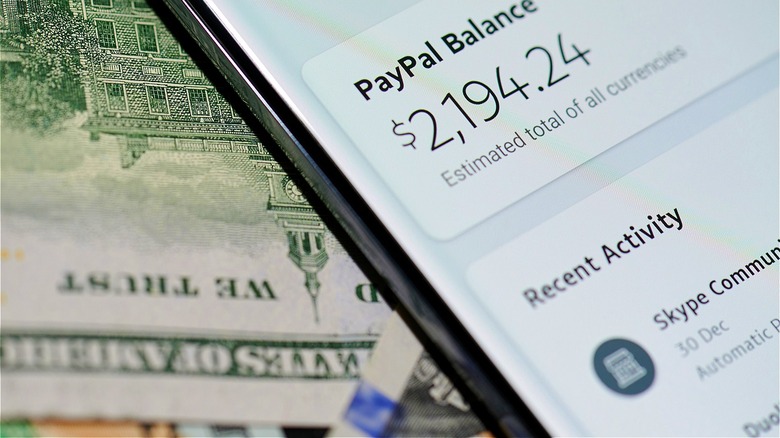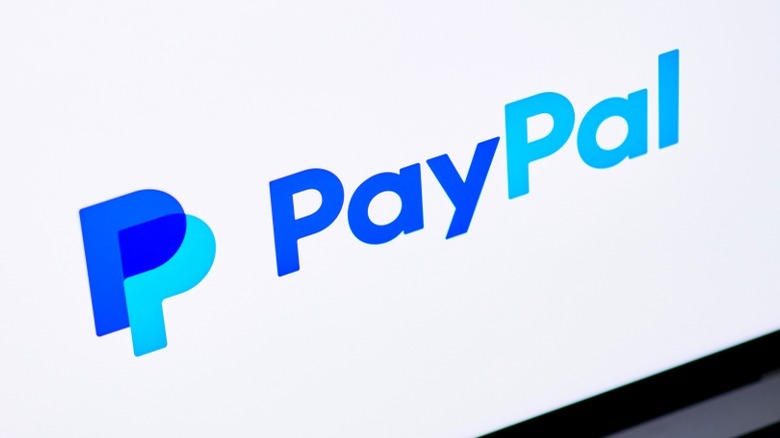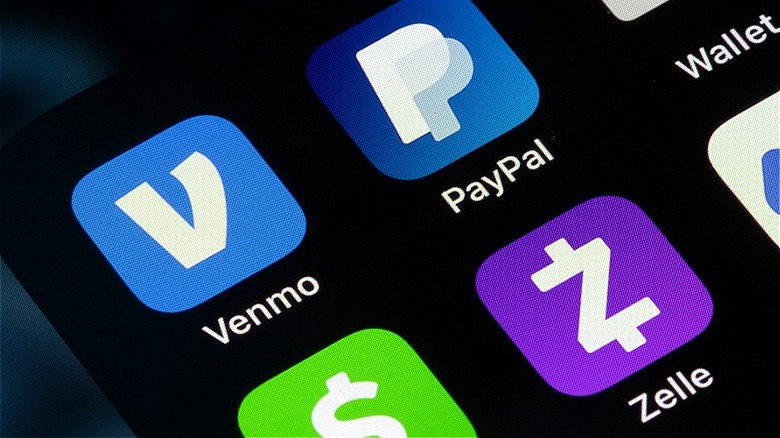Is It Safe To Store Your Money In PayPal?
According to the Consumer Financial Protection Bureau, an agency created to protect consumers from financial abuse, more than three-quarters of all adults in the United States have used a payment app like PayPal. In 2022, these payment apps had an estimated $893 billion in transaction volume so it's safe to say you've probably used a payment app or digital wallet at least once. As these apps and services increase their offerings and incentivize their use you might even find yourself using an app like PayPal with increasing frequency. This might lead you to leave more money in these digital app accounts than you might have in the past. However, despite the ease of use that leaving money in these accounts can create, they're ultimately not a financially safe option to do so for consumers.
From safety concerns, like fraud and scams, to a lack of insurance protection, leaving money stored in a PayPal account is a financially risky decision that could have negative consequences. Plus, since payment apps like PayPal aren't banks, your money won't grow or earn interest while sitting in these digital wallet accounts. Financially (and security-wise), it's a better bet to leave your everyday funds in a high-yield savings account with an FDIC-insured bank, rather than a digital payment app, both for ease of access and to ensure you aren't losing your purchasing power by having inflation outpace your earnings.
The financial downsides
In 2023, the CFPB issued a public spotlight advisory warning about the lack of consumer insurance on payment apps. In the advisory, CFPB director Rohit Chopra stated, "Popular digital payment apps are increasingly used as substitutes for a traditional bank or credit union account but lack the same protections to ensure that funds are safe." Unlike banks, funds stored in a payment app, like PayPal, aren't protected through federal deposit insurance (either through the FDIC or NCUA). This means, should something happen to PayPal tomorrow, there's absolutely no guarantee a consumer could get their money from their account. Any money left in a digital wallet or payment app account could be lost without any consumer recourse to get it back.
Not only does a lack of insurance protections pose a financial risk, but it also actually benefits the individual payment app companies. Since most of the large payment app companies invest the funds left in consumers' accounts (as a way to make more money), it is extremely profitable to these app companies for consumers to leave unprotected funds in their app accounts and digital wallets. Plus, most of these apps' user agreements are intentionally vague when it comes to where and how a user's funds are being used, and since these companies aren't federally insured banks or credit unions, their investment activities aren't subject to the same oversight and scrutiny. This can mean much riskier financial decisions that are ultimately using consumer money.
The safety concerns
A big issue with digital payment apps comes down to the first thing you see when you download an app: the user agreement. Not only do apps like Paypal craft intentionally vague language that lacks specificity when it serves them, but they also force users to agree to problematic terms. For instance, four of the big digital wallet apps (Apple Cash, Cash App, Venmo, and Zelle) don't allow their users to have actionable legal rights. Part of the user agreement for these apps requires users to consent to give up their legal rights in order to even download and use the app. Privacy and data concerns are also a tricky part of using digital payment apps. With this vague user agreement language, most apps have almost unlimited rights and access to your consumer data. This means companies like PayPal aren't only susceptible to hacking, but they can (and do) collect and share your user data.
Another concern about storing money in an app like PayPal is the increase of fraud attempts and schemes from fraudsters using such apps. From rampant phishing attempts to overpayment and even fake payment scams, it can be difficult to operate on these apps and feel safe while doing so. Perhaps the worst part is just how little digital payment apps will intervene (let alone reimburse) in instances of fraud and/or scams. According to the Federal Trade Commission, there were 69,753 reports of fraud on a mobile payment app or service (totaling $130 million in losses) in 2021 alone.


